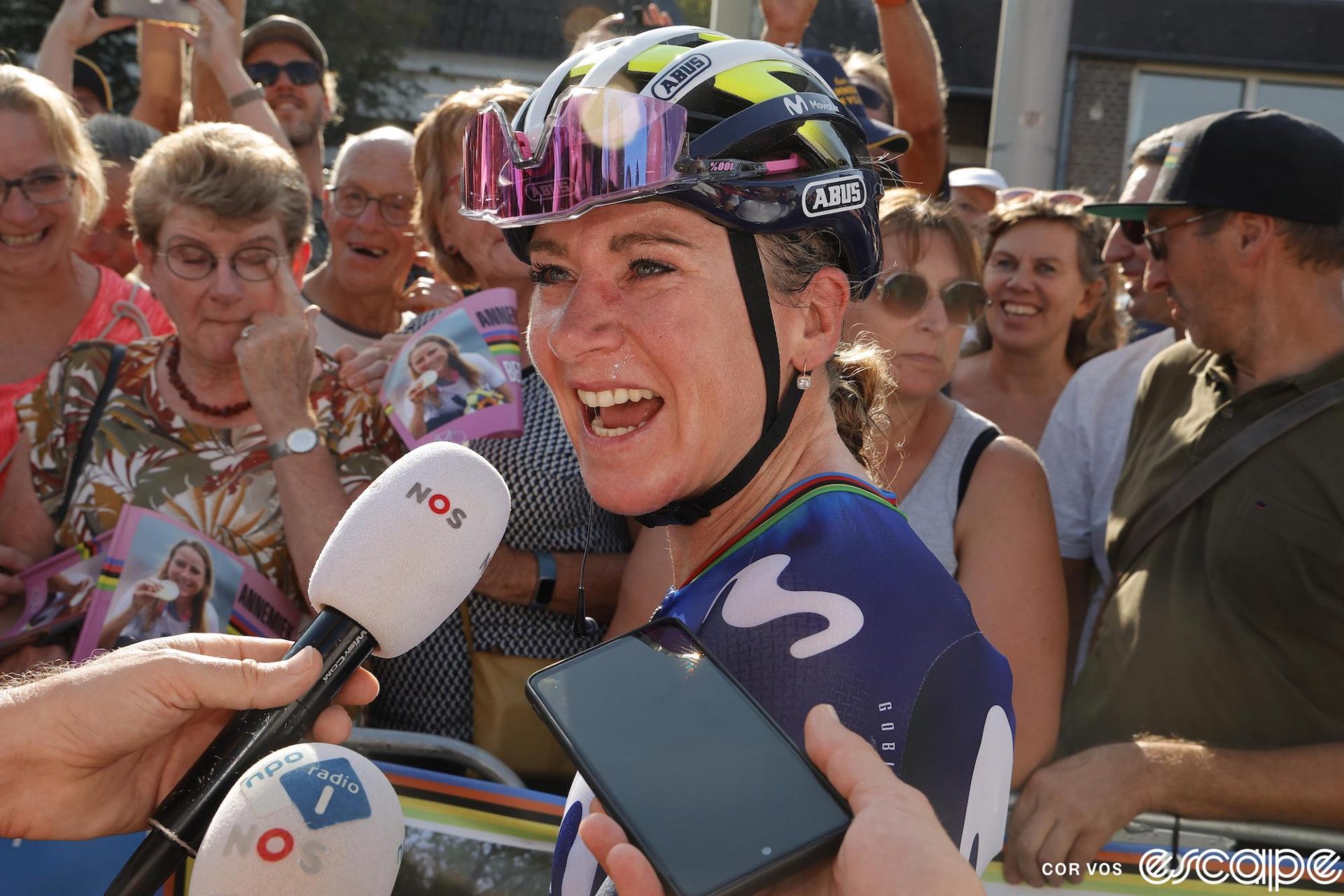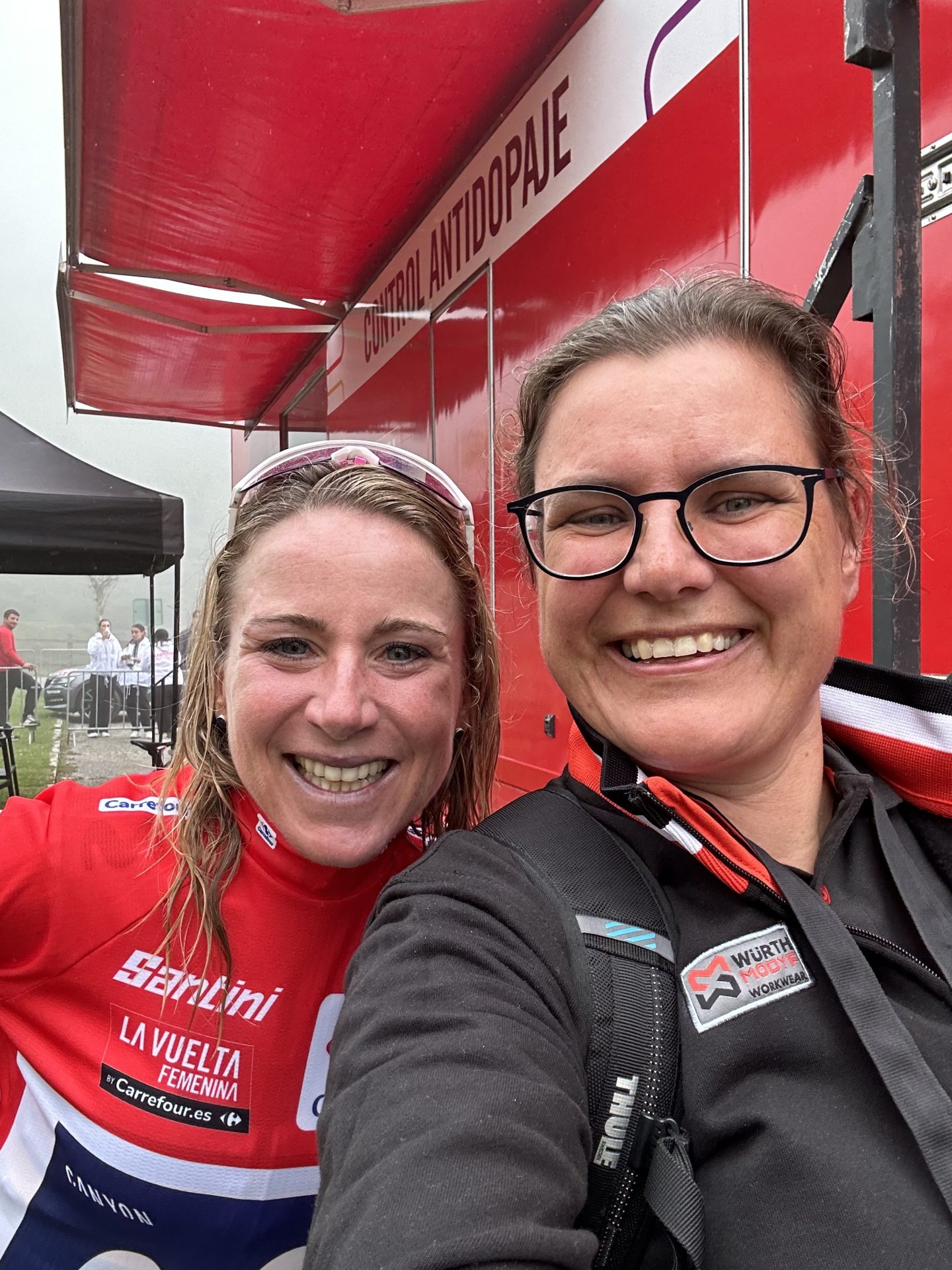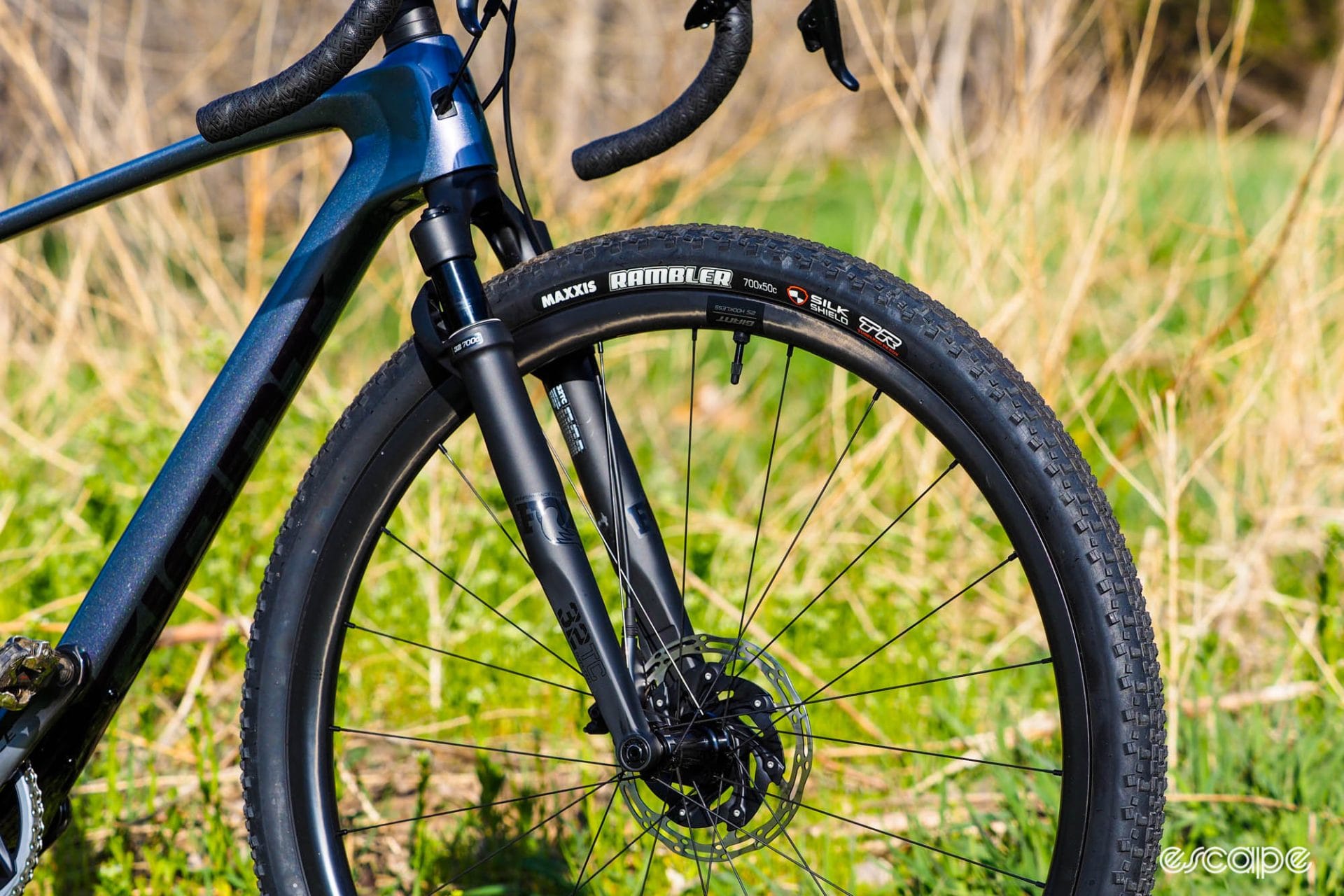The end of an era. It sounds so awfully dodgy, but it is exactly what the last race of Annemiek van Vleuten this weekend in Arnhem was. When she started 15 years ago, women’s cycling was a sport we saw on television once every year, at the World Championships if we were lucky. When Van Vleuten won her first Tour of Flanders in 2011, her mother only got to see the few seconds of coverage where her daughter jumped onto the podium. There was simply no footage available.
Things have changed since Van Vleuten called Marianne Vos in 2008 and asked to be part of the team Vrienden van het Platteland (roughly translated as “friends of the countryside,” a lobby club using a cycling team “to tell the story of the work farmers do”).
The sport in 2008 was hardly professional at all. I remember Ellen van Dijk, who was on that team with Van Vleuten, once wrote in one of her columns that she earned €200 a month when she started. Throughout Van Vleuten’s time, women’s cycling changed completely, and her career exemplifies that change. If you would time-travel back to 2008 you would be shocked. Bunk beds in hotels, getting dressed out on the street, no television coverage, no newspaper coverage and hardly any money. It was charity, not a job.
Women were supposed to train as men did, only less. The idea was that women should not train that much because their races are slower and shorter. The scientific insight that women are different than men was hardly a thing. The sport was a pastime, the real professionals were in the men’s peloton. This changed so fast, especially during the second half of Van Vleuten’s career, and she helped drive that change.
We often take for granted what happened in these fifteen years that the career of Van Vleuten spanned. We tend to easily get used to what we have now in women’s racing. We still want more equality, and rightly so, but the development in this sport went so much faster than it ever did in men’s racing. Some of you may remember the introduction of team buses and scientific progress in literally all aspects of the sport in men’s cycling since the 90s only.
I do not want to write a eulogy here for a rider who is very much still alive, albeit no longer in Lycra in a pro peloton, but it is a fact that Van Vleuten was one of the most important names in progressing the sport. Like many women in the pro peloton, she is intelligent and educated, with a master’s degree in epidemiology from Wageningen University. What struck me most when I started following the sport from the London Olympics on is that riders were very much aware they had to take care of their own PR. Van Vleuten proved to be a master of that. She already hired someone to keep her website up to date early on in her career. She was her own press officer, like many riders were only a couple of years ago.

One of my first big interviews as a writer was with Annemiek. During the COVID-19 pandemic, in 2020, we drove to the National Championships together. She needed a ride and I wanted her time for an interview. One and one equaled two so I picked her and her bike up and we drove to the VAM-berg. The 90-minute drive was recorded on my iPhone and resulted in an interview that led to my contract as a writer, so thanks, Annemiek. She changed into her World Champion’s kit in my car, but had to identify herself at the entrance of the circuit because “who could be sure she was actually who she said she was,” the guard said. She wasn’t bothered; she would never behave as the big champion who felt entitled.
She was a hard nut to crack in interviews because she would never be caught off-guard, saying something she hadn’t planned on sharing. She always kept in control, right within the boundaries she would set for herself, but it was a pleasure to listen to her intelligent analysis of her life as a pro cyclist.
Throughout the years you could see how her perspective on her job changed. She started to realize and share how special and privileged her position was. She earned a living doing what she did and travelled the world. Training camps in Colombia, Australia, Tenerife, Italy, and Spain. She also made friends in all these places. She would never look down on people and would always express her gratitude to those helping her out. The last video Movistar made, she had a personalized World Champion’s jersey for all staff, from riders, to the chef, the mechanics, and front desk representative at the team’s office in Spain. It also shows in the video her previous team GreenEdge made.
On the other hand, as a top athlete you have to be selfish sometimes, you have to go all the way. The biggest champions are hard on themselves but also on the people around them. I think you have to be to make it all the way to the top.
For a long time, I must admit, I found her approach exaggerated, with the many altitude camps and long training hours. She only seemed to come down the mountain to ride and win races and then back to altitude. How could other riders do this, both physically and financially, and get to her level? It was impossible for her rivals. There were also remarks that races should be harder, longer, steeper. My thought was always, but what about the other riders? How can they keep up? Only recently I realized how wrong I was.
A rider like Van Vleuten who has the mental and physical capacity to train so much should not slow down because others can’t keep up. The others should try harder to keep up with her. This is exactly what happened in the last years, and especially in her final season. Her riding, her strength, and her speed became the standard and the competition tried their hardest to get to her level. This year they succeeded.
Van Vleuten raised the bar when it came to the level of women’s cycling and this year, she started to lose because of that. I admire how she dealt with this development. Her attacks were no longer unmatchable. Her time trials no longer unbeatable. She only just won the Vuelta by nine seconds only and that’s where I last met her.
After that stage, on Lagos de Covadonga, I went down to the podium and ran into Van Vleuten in the red jersey. I congratulated her on her win, and on the way she really turned herself inside out on that iconic climb. She told me she was grateful she still had the level to do this. She was grateful her body still had the strength to get through her arduous training regime. She was just simply grateful to be there at that moment in time.

She said: “Come on, let’s do a selfie.” Normally I am not that keen on taking selfies with pro cyclists because I work in this sport but this time, I am happy I have this picture. It shows two people in their forties happy and thankful to be exactly there at that place and that moment in their lives and their careers.
“You can’t change what is out of your own control. You can only change what you can control.” That’s a powerful statement she often repeated. In Annemiek van Vleuten I see a woman who lives by that motto – and we all know that is the hardest thing to do. With that philosophy and with her personality on and off the bike she inspired a generation including that new generation that now rode alongside and beat her in her last season. Although being beaten hurts, especially when you are a champion like Annemiek van Vleuten, she showed how time moves on. It’s out of your control. It’s how you deal with it, that matters. That is how she inspired me, and keeps inspiring me. Bedankt Annemiek!
Did we do a good job with this story?



